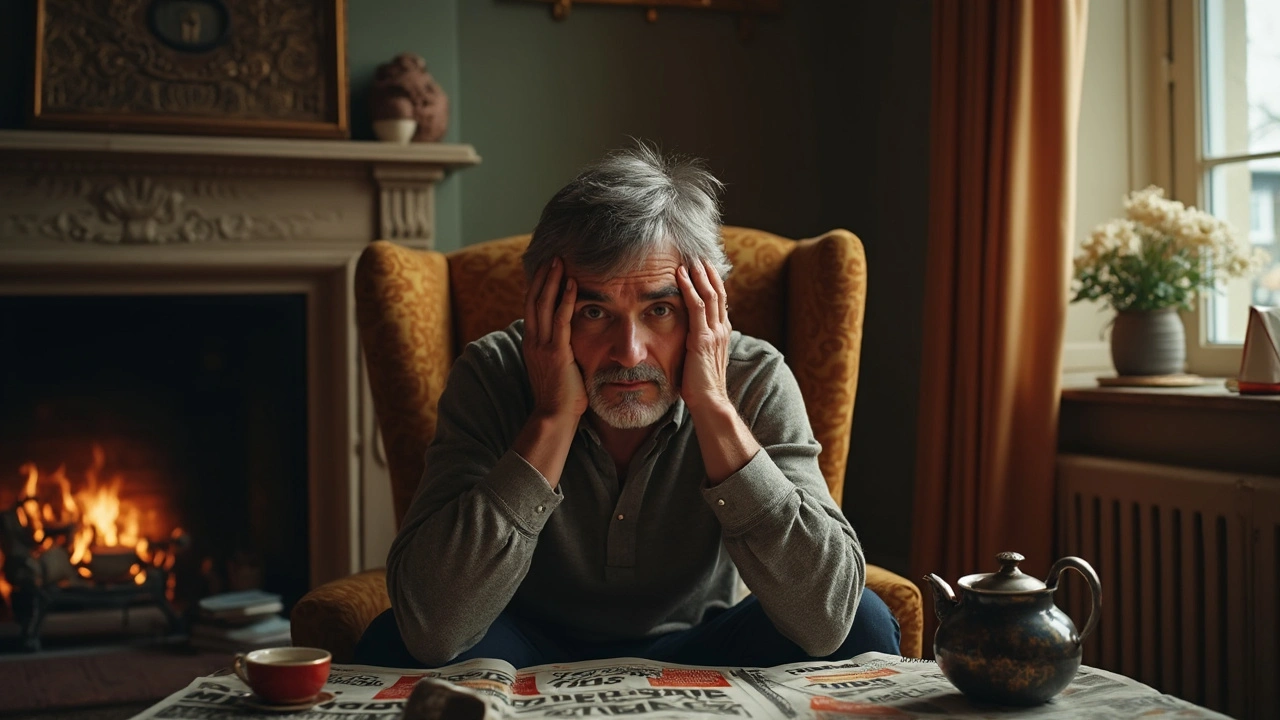Anxiety Symptoms: How to Recognize and Manage Them
Ever feel your heart race out of nowhere or a sudden rush of nervous energy that just won't quit? Those can be signs your body is pulling alarm bells called anxiety symptoms. It’s more common than you might think, but that doesn’t make it easier to deal with. The good news? Recognizing these symptoms early can help you take control before things spiral.
Common anxiety symptoms pop up in your body and mind. You might notice restlessness, feeling keyed up, or trouble concentrating. Sometimes physical signs show up—like sweaty palms, a shaky voice, tight chest, or even stomach upset. These reactions happen because anxiety triggers your body’s stress response, gearing you up to face a threat that often isn’t really there. Weird, huh?
Why Knowing Your Symptoms Matters
Knowing what anxiety symptoms look like is the first step to beating them. When you can spot when anxiety is creeping in, you can try simple tricks to calm yourself down. This might be as easy as some deep breathing, taking a moment to ground yourself, or using mindfulness apps that focus on staying present (and yes, some of these apps really work!).
One practical tip: when your mind races, try to name what you’re feeling out loud or jot it down. Putting the feelings into words can help your brain break free from the spiral. And if your body feels tense, a few minutes of stretching or a quick walk often helps loosen things up.
Real Ways to Ease Anxiety Every Day
Managing anxiety isn’t about one giant fix—it's small steps that add up. Many have found that relaxation techniques like meditation or creative arts therapies (think painting, music, or dance) bring real relief by shifting their focus and boosting mental strength. These are more than hobbies; they're tools that unlock calm and control.
Don’t underestimate the power of setting health goals too. Moving slowly toward better sleep, balanced meals, or regular exercise builds up your resilience bit by bit. Even tiny wins like choosing a healthy snack instead of turning to sugar or caffeine can stabilize your mood and energy.
If anxiety symptoms ever feel overwhelming or constant, seeking professional help like therapy or counseling can make a huge difference—no shame in that. Therapists can offer tailored techniques to tackle anxiety in ways that fit you.
Feeling anxious isn’t about weakness—it’s your body telling you something needs attention. By tuning into those signals and using practical methods, you can steer yourself back to calm, step by step. Keep exploring what works for you; relief is closer than it seems.


